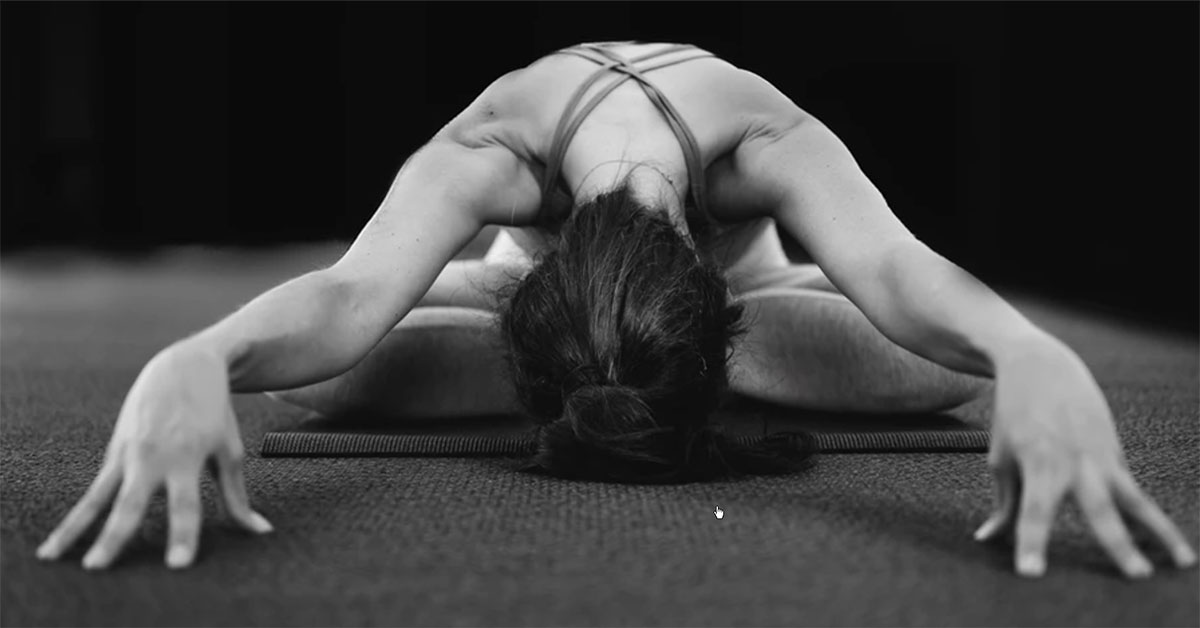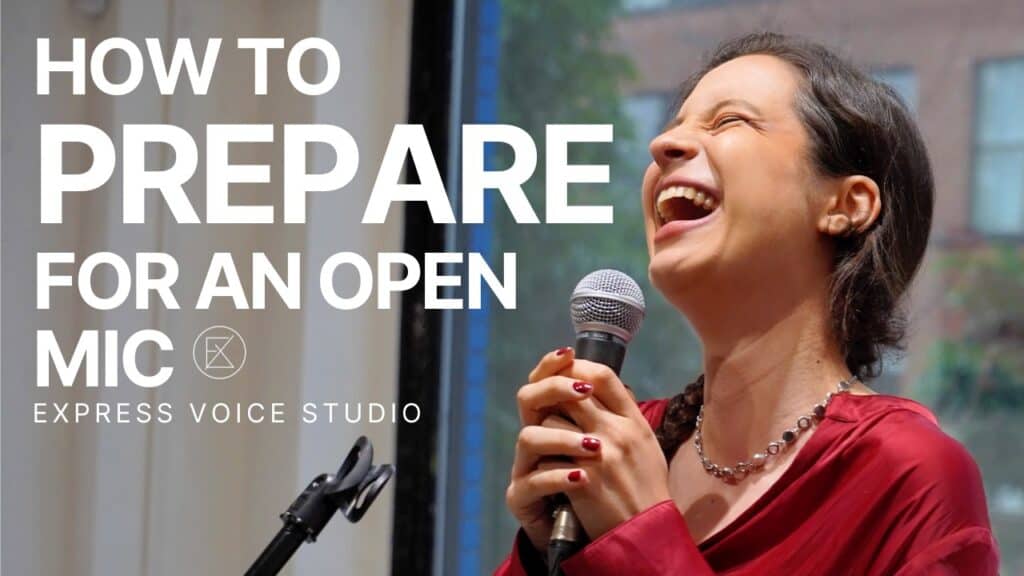Stretching Cannot Help Your Voice
We are about to bust open one of the trendiest fitness routines of our generation and answer the question: Does stretching help with singing?
The short answer, No. Stretching does not inherently help improve your singing voice.
So…Yoga for singers, why do it?
To feel more present in the body? To allow space for breath? To improve flexibility? To help posture? To relieve pain?
There are some really amazing benefits of yoga. Do it for your mental health, to stimulate a part of your body when you wake up, you could even do it for the positive correlation it induces between heart health and your resilience to stress, but please:
Don’t think you can change the way you breathe and sing by increasing the time you spend stretching.
A necessity for “breath work” often derives from a teacher observing compensating movements in the upper body as the student inhales. In the pursuit of moving a singer’s breath out of the shoulders and chest and into the intercostals and back muscles, singing teachers often use creative metaphors, hoping to trigger a psychosomatic change in their student: Think of a sigh of ecstasy! Be like a monkey!
Sometimes, these images work, and the student re calibrates their perception of singing with a new, more accurate sensation . More often, students walk away with a cognitive understanding that their breath is too high, that their shoulders move too much, and somehow they need to get the tension in their chest, back, and hips to release to make room for a deeper breath.
Enter stretching.
As we stretch, there is a pleasant sensation of expansion and release which we often mistake for beneficial change. In reality, this is merely a moment of awareness as your mind registers a sensation in an area of the body where there previously was none. Numerous studies have demonstrated that stretching not only fails in achieving most of its perceived benefits, but can actually have a negative impact on performance and alignment including a decrease in lower body stability by 22 percent!
Certainly, overall flexibility can improve from stretching, but most stretchers don’t suffer from limited movement, in which case overdeveloped flexibility serves no beneficial purpose. Now, what if your intention is to release tension in a tight muscle you believe is impairing your breathing? Every muscle in your body has a resting level of tension set by the nervous system. Over the course of your life, your posture, repetitive movements, and stress teach these muscles to remain tight. While static stretching temporarily lengthens muscles by reducing the activity of the stretch reflex, the effect is short-lived. Our muscles typically start tightening up within a few hours as the stretch reflex regains normal function. Whatsmore, many of the key muscles involved in singing are unstretchable!
Most of us will hit the end of the natural range of motion of the joint long before we’ve stretched anywhere near as hard as you can stretch other muscles. In other words, some muscles are just biomechanically awkward to stretch. I call them “the unstretchables” — a bit of hyperbole, but true in spirit. Although these muscles can be elongated, they can’t be elongated enough to create the satisfying sensation of good stretch.*
When singing a difficult phrase requiring sustained support or powerful vocals, you must engage the expansion of your back and intercostal muscles. The intercostal muscles, located in the chest between the ribs are nearly impossible to manipulatively stretch. Their role in singing is one of coordinated release and lengthening achieved through inhibition (or an accurate body map in the students mind) which invites a correlated relationship of expansion from the lower back muscles. And what about post-workout soreness, those days where you have to perform vocally but that lower body session from two days ago has you feeling stiff and vocally blocked? Won’t stretching help to loosen these knots? No.
Your best option is to practice a level of awareness in your workout wherein you monitor proper form, not as it is explained with the end goal of lifting a heavy object, but from an alignment and muscle engagement perspective: Any compression of the spine and lower back or tightening of the psoas and related respiratory muscles will need to be released to its natural resting length throughout every movement and at the end of every session to minimize the impact of workouts on the function of singing.
The deep soreness that follows a hard workout (“delayed-onset muscle soreness” (DOMS) or sometimes just “post-exercise soreness”) is very uncomfortable and it does impair performance. Many people believe that stretching can prevent or relieve it. But this definitely doesn’t work. Basically, nothing touches DOMS — nothing anyone has ever claimed as a treatment for it has actually passed a fair scientific test.*
The deepest problem for singers and non-singers alike lies in our tendency to only become aware of an issue in the body when a tension or misalignment has progressed so far as to cause pain and discomfort. Then, an attempt is made to eradicate the nuisance and yet no question of WHY is posed. Simply stretching tight muscle tissue without addressing the habitual irritant will only result in further misuse of the body and myofascial discomfort. Often, the culprit of our tensions and pain is our own posture and the manner in which we use our body habitually every day of our lives.
Muscles are “dumb”; they do only what they are told to do. I’m constantly pounding it into my patients’ heads that the nervous system controls everything and muscles don’t contract unless the nervous system says so. If a muscle is chronically tight, there’s a reason – for example, the body trying to provide stability to an unstable joint.
-Linsay Way, Dynamic Chiropractic
Chiropractors now suggest warming up your body by doing the exact moves your exercise routine calls for. Thus, in the case of a singer, warm up your connection to deep breathing through… breathing.
Careful- Herein lies a cyclical problem.
When I ask you to breathe, you have an instant reaction of what it means to breathe: How you perceive this action and what you feel while doing it is called your sensory perception. If a faulty sensory perception of “how to breathe” is causing you to follow a habit wherein your body is misaligned and holding tension, a warm up of breathing will never change your habit!
A 2010 paper in Physical Therapy identified our nervous system’s ability to learn how to allow greater movement. This means that a reduction in malleability anywhere in your body is actually a neurologically imposed limitation, not a physical one! The only way to change the resting level of muscle tension being set by the nervous system is through active psychosomatic movement. Improper movement, or habitual movements, can increase undesired tensions, posing a critical need to address faulty sensory perception and re-educate the student’s nervous system through Alexander Technique. Numerous studies back the Alexander Techniques’ efficacy, such as these two randomized studies that show the techniques as less expensive but equally effective, if not more than massage and even yoga in dealing with a full range of issues.
What we can take away from the way athletes approach their warm-up today is using a more gentle, focused piece of the ‘action of singing’ before diving into full belting, opera, or other styles that will call for maximum support. When the coordination and resulting movements are done properly, with a reliable sensory perception and coordinated release and expansion of the body, starting our session as singers by simply practicing breathing and gentle sound production is the absolute best way to warm up! Through this work, you are awakening the psychosomatic relationship integral to singing between your intention, your musicality, and your physical instrument.








